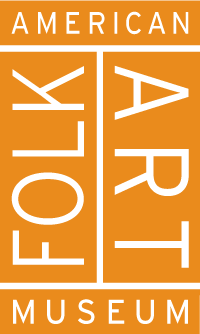Focusing on the environment, the exhibition An Ecology of Quilts: The Natural History of American Textiles highlights the many facets of global material culture that emerged in the early modern period and profoundly shaped the United States in the 18th, 19th, and 20th centuries.
In her book Black Bodies, White Gold: Art, Cotton, and Commerce in the Atlantic World (Duke University, 2021), historian Anna Arabindan-Kesson juxtaposes contemporary artworks with historical moments to explore the visual relationship between the cotton trade and the representation of the Black body in American culture.
In her forthcoming book, Suitable: The Sartorial Revolution and the Fashioning of Modern Men, designer and historian Chloe Chapin investigates the materiality and manufacture of men’s suits between the American Revolution and the Civil War, including their linen (and then cotton) shirts, tracing material connections to land, labor, and the virtues of whiteness.
Using a selection of textiles and quilts on view as a springboard, the two historians will present their research on cotton as material, process, and value, and explore the links between the American textile industry and the construction of identity.
Introduced and moderated by Teju Adisa-Farrar, creator and host of the Black Material Geographies podcast, this program offers an opportunity to examine how the materiality, production, and maintenance of cotton-based textiles have historically shaped and symbolized ideas of race, labor, and power in America.
About the speakers:
Anna Arabindan-Kesson holds the position of Associate Professor of Black Diasporic art with a joint appointment in the Departments of African American Studies and Art and Archaeology at Princeton University. Her work emphasizes histories of race, empire, medicine, and migration from the 18th century to the contemporary. She practiced as a Registered Nurse before completing her PhD in African American Studies and Art History at Yale University. Her prizewinning monograph is called Black Bodies White Gold: Art, Cotton and Commerce in the Atlantic World (Duke University Press, 2021). Her second monograph Empire States of Mind is under contract with Duke University, and the book she edited, Beyond Boundaries: Seeing Art History from the Caribbean will be published this year with Yale University Press. Anna is the director of Art Hx a platform for exploring art and medicine and sits on multiple arts Advisory Boards, in the US and internationally. She holds a Senior Research Fellowship at the Art Gallery of Western Australia, where she curated an exhibition with US-based photographer Sam Contis and has also been a Terra Rome Prize Fellow at the American Academy in Rome. She is now a guest mentor and lecturer in the Arts Intensive Study Program led by artist Wael Shawky for the Fire Station Contemporary Art Space in Doha.
Chloe Chapin is a designer, artist and fashion scholar. She holds a PhD in American Studies from Harvard University, and master’s degrees in history (Harvard), fashion and textile studies (FIT), and costume design (Yale). As a costume designer for over twenty years, Chloe worked on Broadway musicals, Shakespeare, opera, and downtown experimental dance theater. She has taught courses on fashion history, costume design, gender studies, museum studies, and anthropology at FIT, Parsons, Reed College, and Harvard University. Chloe is a former Fulbright Scholar and has held fellowships at the Smithsonian, Mount Vernon, and Monticello. She works at Harvard University and lives in Cambridge, MA with her dog Tiny. Her first book, Suitable: The Sartorial Revolution and the Fashioning of Modern Men, comes out with Oxford University Press in 2026.
Teju Adisa-Farrar is the founder and ecosystems director of the Black Fiber & Textile Network (bftn), a global community for Black people who grow, use, and work with plant-based fibers, textiles, natural dyes, and other sustainable materials. She is the creator and host of the Black Material Geographies Podcast and an environmental designer. A 2025 Craft Archive Fellow with the Center for Craft, Teju has collaborated with institutions such as the Smithsonian’s Cooper Hewitt Museum and the United States Embassy of Botswana, and has spoken at colleges including Princeton University and the Rhode Island School of Design. As an independent researcher, her work explores and honors Black people’s relationships to plant dyes, botanical pigments, natural fibers, and sustainable textiles. She creates opportunities and advocates for Black communities to connect with nature, agricultural art and ecosystems of survival. Teju is currently based on Mvskoke Land (Atlanta) and goes wherever else she is called.
Images
Left: Wolf Helmhardt von Hohberg (1612–1688), “Bleiche [bleach],” from Georgica Curiosa Aucta, 1716. Munich Digitization Center.
Middle: Cornucopia and Dots Whitework Quilt, c. 1800–1820. Cotton, 95 x 89 in.
Right: Flying Geese Quilt, c. 1870. Cotton, 82 x 68 in. Collection of the American Folk Art Museum
Registration
Space is limited; advance registration is required. Please consider making a donation when you register to support ongoing virtual programming.
Instructions for joining with a Zoom link and password will be provided by email upon registration confirmation under “Additional Information.”
Closed captioning will be provided in English.
For questions or to request accessibility accommodations, please email publicprograms@folkartmuseum.org.
